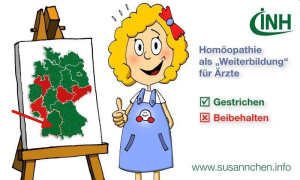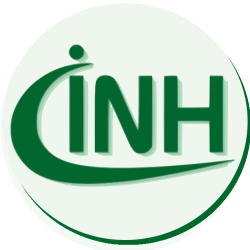The decision of the Baden-Württemberg Medical Association to remove homeopathy from the state’s further training regulations was met with very clear and repeated public criticism by the Minister for Health, Social Affairs and Integration of the state of Baden-Württemberg, Manfred Lucha. Minister Lucha makes no secret of his intention to use all possibilities to (legally) overturn this decision.

In the end, we cannot judge that. What we do claim competence in, however, is the content of Minister Lucha’s criticism. These are almost a conglomerate of homoeopathy apology, in which we even seem to lack a direct factual reference to the criticised resolution of the State Medical Association. We would not be the INH if we simply let such a range of publicly expressed invalid arguments stand. Minister Lucha has therefore received the following open letter from us today. We ask for your understanding for the detail, we felt it was necessary.


Minister
for Social Affairs, Health and Integration
of the State of Baden-Württemberg
Manfred Lucha MdL
Else-Josenhans-Str. 6
70173 Stuttgart
via e-mail: poststelle@sm.bwl.de
13.08.2022
Resolution of the State Medical Association of Baden-Württemberg
on the deletion of homeopathy from the state medical further training regulations
Esteemed Minister Lucha!
As an independent interest group that has been involved since 2016 in informing the public about the facts and background of homeopathy and has a significant influence on the public discourse on the subject, we would like to comment on your recently published position on homeopathy in various media, and in particular on the decision of the BW State Medical Association to remove homeopathy from the state’s further training regulations.
We do not understand your positions and justifications, especially as they consistently lack concrete references to the resolution of the State Medical Association BW. We consider it problematic to publicly deny the rationality of the LÄK in this way and thus to affect the public credibility of the organised medical profession.
We would like to explain this in more detail below.
You repeatedly (most recently in the “Südkurier” on 10 August) refer to homeopathy apodictically as “effective”. However, how should a method be “effective” beyond context effects, which uses an imaginary “principle of similarity”, which does not occur anywhere in the reality of life, to find its remedies? How should credit be given to a method that claims that a combination of dilution and ritual shaking would release a “spiritual medicinal power” from the substances with a simultaneous loss of the material agent, which would become stronger and stronger with increasing dilution / shaking? All everyday experience speaks against this, daily proven and applied physical and chemical knowledge, ultimately also the much-cited common sense. To assume the opposite would be to presuppose that general laws of nature are not applicable to homeopathy of all things.
As a purely personal conviction, that is one thing. But another would be a claim to the general validity of such a position. However, science is looking for such general validity, also referred to as intersubjectivity, in order to enable decisions beyond the personal sphere on a reliable basis – it asks for the much-cited evidence.
Such decisions beyond the personal sphere are also those of health policy, which affect the weal and woe of many people and also have a lasting influence on their health literacy. The scientifically well-founded decision of the State Medical Association to no longer include homeopathy in the medical training regulations precisely because of its lack of intersubjectivity also belongs in this category. The State Medical Association is by no means alone in this, but is in line with 12 of 17 others and the Federal Medical Association, all of which consider it unacceptable to include methods that are not scientifically proven and cannot be rationally justified in their training regulations, which are committed to science.
In this respect, scientifically substantiated evidence – in the case of homeopathy the lack of such evidence – cannot simply be placed on an equal footing with subjective assessments when it comes to decisions with implications for other people, let alone the general public. We would therefore like to show you how well-founded the statement is that homeopathy lacks evidence of specific medicinal efficacy.
This is derived from the large systematic reviews that assess the study situation according to rigorous international standards and paint a clear picture as overall evidence[1] at the highest level [2]: valid evidence for the efficacy of homeopathy does not exist. For not a single clinical picture does even one of the reviews report valid or reproduced robust evidence of superiority over context effects (including placebo).
This is not diminished by the fact that individual studies are repeatedly presented that claim to have found positive effects for homoeopathy.[3] Individual results, especially without independent replication, cannot shake such a solid overall level of evidence. Moreover, there are many reasons why individual studies can come to “positive” results – e.g. chance results or artefacts of various causes, which could be proven again and again in many such studies.
Homeopathy is not evidence-based: this is not an opinion, but the well-documented state of science, which the homeopathic sphere of interest repeatedly tries to counter with unsuitable arguments and misguided interpretations.[4].
Now, of course, one could nevertheless consider a role for homoeopathy in the health system to be justifiable, from a political point of view, for example, because one finds the ostensible “popularity” of homoeopathy relevant. Certainly, politics is not science and science is not politics. But this gives rise to irresolvable contradictions.
A health system financed on the basis of solidarity has limits, not only financial limits (the latter are the most obvious, since the effects of the health care deficiency system are felt in many places, but by no means the only ones). So criteria need to be defined to decide where to draw boundaries. This boundary is defined by health economics and by the core ideas of social legislation: it is the criteria of evidence-based medicine, the red line between proven effective – or not.[5] It is neither beneficial to the system itself nor to the health care of the people insured if this boundary is not clearly drawn. Moreover, if this were to happen (and unfortunately it does), there would be no argument to deny other desires for access to the health system on the grounds of a lack of evidence – from osteopathy to shamanism.
Such a lack of demarcation would not be limited to a few lines of abstract legal text. What is at risk is a loss of scientific competence in medicine, health care and beyond, that arbitrariness becomes a decision-making category and a wrong signal is given with regard to health literacy in the general public.
In this respect, the decision from 1976, contrary to the intention of the legislative process at that time, to create special rights for the “special therapeutic directions” of homeopathy, anthroposophy and phytotherapy, presents itself today as the basis of a fatal undesirable development. Unfortunately, this fracture in the system has been further widened by the so-called internal consensus under social law (§ 137 SGB V, 1997) and the expansion of the catalogue of statutory benefits in § 11 Section 6 AMG 1978 (by the 3rd SHI Care Structure Act, 2012). [6] In this context, we also criticise the model of “statutory benefits”, which represents an invitation to the SHI funds to gain an ostensible competitive advantage in customer acquisition by offering dubious “health services” for sale, which has long since either come to a standstill or means nothing other than mutual cannibalisation within a common system. This by the way.
In the following, we would like to address some of the arguments of your criticism of the decision of the Baden-Württemberg Medical Association which we consider to be essential.
For example, we cannot explain why this resolution should restrict the “health care of the population”, as one of your first points of criticism read. Nobody “bans” homeopathy or somehow restricts access to it for people who want to use it. Even doctors are still allowed to use homeopathy – as long as they follow the medical ethics rules for placebo therapy. However, an “additional title of homeopathy” as an ostensible proof of special competence is not appropriate in view of the unscientific character of the method.
The argument of low costs in relation to the total expenditure of the health system also has little or no relevance. The pecuniary aspect with the SHI funds is at best a marginal issue in the science-based critique of homeopathy. It should be noted that we do not consider the repeatedly different amounts mentioned in this context to be valid (in the “Südkurier” you yourself put the figure at € 16 million, the Federal Ministry of Health recently mentioned € 6.3 million, up to now there has always been talk of an amount of around € 20 million). This is because – whatever the figure – it always refers to health insurance expenditure on homeopathic medicines alone, whereby it is unclear whether the regular benefits for children and adolescents are included in this figure or whether it is only a matter of statutory benefits. Two other things, however, are much more essential:
- What is never disclosed (at least to our knowledge) are the costs for the homeopathic therapies that the health insurance funds reimburse via the selective contract with the marketing company of the Central Association of Homeopathic Doctors. Here it remains a matter of speculation, but it can by no means be ruled out that these significantly exceed the expenses for homeopathic medicines.
- However, the consideration cannot be limited to the cost share of the SHI funds. Trusting that – with state recognition as a medicinal product, with the blessing of the health insurance funds and ennobled by the pharmacy obligation – it is effective medicine, the population spends several hundred million euros out of their own pockets on it year after year. If the financial aspect of homeopathy is being discussed, this cannot go unnoticed.
Efforts to maintain reimbursement and compulsory pharmacies and at the same time “talk down” their monetary effects in the health system could therefore quickly give the impression that it is only about maintaining the reputation of the method. We are only adding the aspect of consequential costs due to delays in diagnosis and therapy as a result of treatment attempts with non-effective sham remedies here for the sake of completeness.
Ultimately, however, the financial aspect of the matter is contradictory: on the one hand, the SHI reimbursement amounts are said to be “peanuts”, but on the other hand, a change in the reimbursement regulation is hyped up as a measure of immense – also economic – scope and considerable to unbearable burdens for those insured with an affinity for homeopathy. So far, no one has been able to conclusively resolve this contradiction.
Baden-Württemberg may be the “Land of Naturopathy”, why not? This may look good on a state politician, but it is wrong in the context of the homoeopathy discussion. Homeopathy is – contrary to what homeopathy advertising suggests – not naturopathy. It is an artificial construct of Samuel Hahnemann’s thoughts based on pre-scientific to mystical ideas and, according to its self-understanding, a specific drug therapy. Neither the unlimited range of substances that can potentially be considered as homeopathic primary substances allows a conclusion to be drawn about naturopathy, nor the end products, in which a lot of effort is made to remove any “natural substances” that may have been present at the beginning as completely as possible. The “agent” of homeopathy is an imaginary “spiritual medicinal force”, an outdated vitalistic model, whose continuing claim to validity manifests itself to this day in every single production process of homeopathic remedies.
In the “Südkurier” you refer to the fact that Baden-Württemberg has recognised institutions that practise “effective” homeopathy. Now, the mere existence of a method or even of institutions practising it says nothing about its validity. In Heidenheim, it is a homeopathic outpatient clinic integrated into the facility, which is run by an “Association for Homeopathy and Life Care”[7]. We consider it at least an open question whether the facility as a whole can be identified as a “homeopathic clinic”. As far as the Robert Bosch Hospital and the foundation of the same name are concerned, in connection with the implementation of the new chair for complementary and integrative medicine in Tübingen, the dean of the medical faculty has made it clear that he does not locate homeopathy in this context. Most importantly, he pointed out that the Robert Bosch Hospital and the Foundation, as partners of the chair, had “quite clearly abandoned homeopathy.”[8]
We would like to leave it at these essential points. We combine our letter with an appeal to you to reconsider your position on homeopathy and on the decision of the State Medical Association, especially the basis of your public argumentation. We would also be happy to be at your disposal for a further exchange in any form that suits you.
Yours sincerely
Homeopathy Information Network
Dr.-Ing. Norbert Aust (Spokesperson)
Dr. med. Christian Lübbers (Spokesperson)
Udo Endruscheit (Spokesperson)
Prof. Dr. Jutta Hübner (scientific advisor)
References
[1] https://link.springer.com/article/10.1007/s00106-021-01061-w#Sec3
[2] https://www.homöopedia.eu/index.php?title=Artikel:Systematische_Reviews_zur_Homöopathie_-_Übersicht
[3] https://link.springer.com/article/10.1007/s00106-021-01061-w#Sec8
[4] https://netzwerk-homoeopathie.info/evidenzbasierte-medizin-homoeopathisch-definiert/
[5] https://netzwerk-homoeopathie.info/von-wegen-so-okay-herr-spahn-ein-gastbeitrag-von-pharmaoekonomin-prof-dr-tina-salomon/
[6] https://netzwerk-homoeopathie.info/binnenkonsens-was-ist-das-eigentlich/
[7] https://www.hz.de/meinort/giengen/125-jaehriges-bestehen-verein-fuer-homoeopathie_-gesundheit-das-groesste-anliegen-39312041.html
[8] https://medwatch.de/alternativmedizin/dekan-zu-umstrittenem-lehrstuhl-unsere-partner-haben-ganz-klar-die-homoeopathie-verlassen/
Pictures: Gerd Altmann on Pixabay / Own Meme (INH)



3 Replies to “Open letter to Minister Lucha, Baden-Württemberg, on the deletion of homeopathy from the further training regulations of the State Medical Association”
Comments are closed.